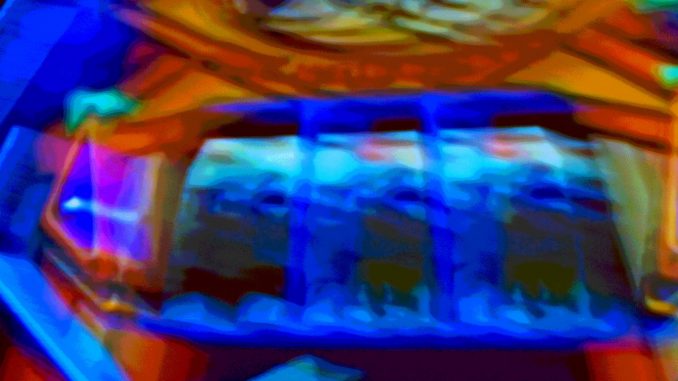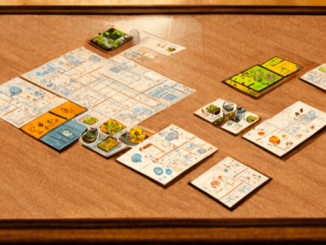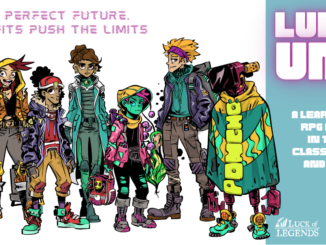
Until I was 17 years old, I was a hardened gamer. Platformers, strategy, beat’em up, FPS… I loved them all. But one day, without really knowing why, I got bored of video games and ended up forgetting about them … for a decade.
At the end of that period, 3 things brought my attention back to games, although from a different perspective: the concept of gamification (which I became familiar with from my previous work), the rediscovery of storytelling tabletop Role Playing Games (especially Wraith: The Oblivion) and finding out about the indie developer community.
I wondered for a while why I had got tired of video games in the first place, and why I got somehow interested in them again. Had games changed? I didn’t come to any definitive answer. But I quite like a philosopher named Ludwig Wittgenstein, and an example he used in his book Philosophical Investigations came to mind. That was going to free me from my conception of what games ought to be.
68. How is the concept of a game bounded? What still counts as a game and what no longer does? Can you give the boundary? No. You can draw one; for none has so far been drawn. (But that never troubled you before when you used the word “game”.)
(…)
101. The idea now absorbs us, that the ideal [i.e. the essence of a game] ‘must’ be found in reality. Meanwhile we do not as yet see how it occurs there, nor do we understand the nature of this “must”. We think it must be in reality; for we think we already see it there [when we are able to talk about ‘games’, and readily intuitively classify something as ‘a game’ or ‘not a game’].

As could not be otherwise, my notion of video game was totally conditioned by the video games I had played, or had seen, or had read about. But none of them could really be thought of as paradigmatic, simply because that ideal does not exist by itself: we put it together. That undeclared ideal is created and nourished based on our previous experiences, the instances of what has been shown to us labelled as games. And this is done subconsciously by both players and developers.
If you think about it, the genres and subgenres that have come to define the different possible categories of video games just happen to be there by natural selection. At some moment, a game mechanic was compelling enough for the players so that designers decided to reincorporate it (and refine it) in later video games. Other developers decided to imitate them, and that was it. The same goes for narrative and visual aesthetics. Although this of course is something to be expected from a business point of view, this persistence of genres, mechanics and narratives have reinforced the stereotypes and expectations that are held about video games, both by players and non-players. That was precisely what had happened to me at 17: I had got tired of some specific (though certainly prevailing) game design decisions, and applied that judgement to every possible game. Simply put, I had developed a prejudice.
All this motivated me to delve into the technical and conceptual tools on which game design is based, and I got decisively convinced that the potential of these tools went far beyond their conventional use and implementation. Above all, what fascinated me most was the possibility of hybridizing apparently disparate disciplines that interested me, through game design.

Soon after in 2019, I found out about the International Prize for Cultural Innovation organized by the CCCB (Centre of Contemporary Culture of Barcelona). which set out to incentivise dialogue, reflection and creativity related to the Internet, promoting innovative projects that help to empower citizens and improve the Net. It seemed like the perfect opportunity to put this game design philosophy to the test, so I gathered a team, and we submitted our proposal: World Wild Web.
World Wild Web is a collaboratively designed non-profit video game where players will realize the power of digital persuasion, its economic, political and social influence and its ubiquitous weight on social media. At World Wild Web, you will be part of a team of professional commentators at FloKs, a social network whose business model focuses on an under-exploited digital market: authoritarian regimes. Under the slogan “Your Sovereign Internet”, FloKs offers its clients (the governments of these regimes) a modern and personalized social platform that allows them to integrate their methods of social control in a discreet way. As a FloKs commentator, you will have to participate in the disinformation and astroturfing campaigns of one of these governments in the midst of different crises. Impersonating multiple ordinary users, you will intervene in various FloKs discussions with the aim of mitigating social discontent. To do this, you will make use of logical fallacies, SPAM, fake news and selective censorship to shape the public opinion of Internet users.

We were extremely lucky and our idea was awarded the first prize, which allowed us to finance the development of the video game. At the moment, the code programming is practically finished. We are now incorporating the narrative and defining the different missions that will make up the game. We are inviting various groups of people, both experts and ordinary citizens, to help us include the most relevant themes into the story, so that the game will reflect some of the real challenges that we face in this era of disinformation.
To conclude, I would like to encourage everyone (players and non-players) to constantly unlearn what games are, or should be… Let the indefiniteness of play surprise you. You cannot possibly imagine what you might discover.
- Unlearn what play should be - 15th September 2020





Be the first to comment